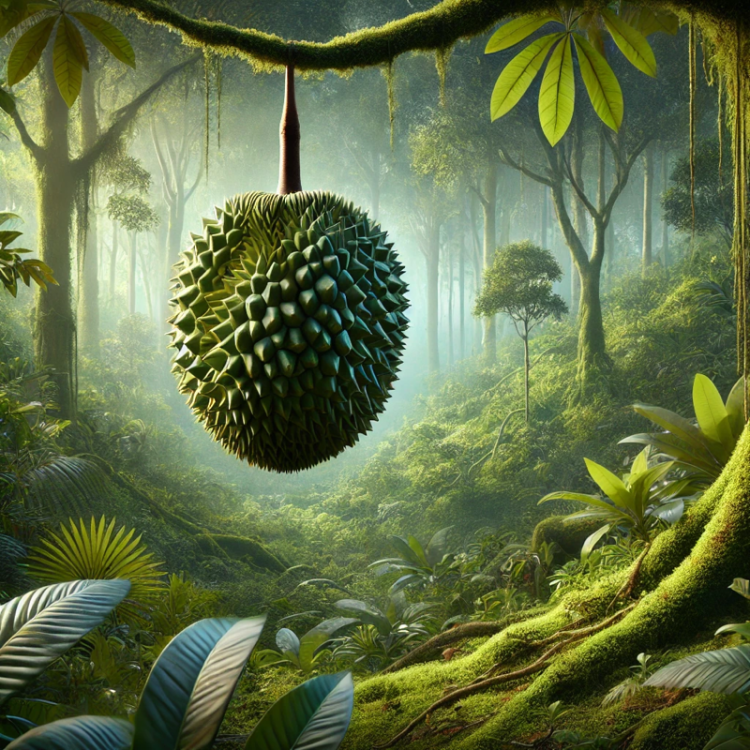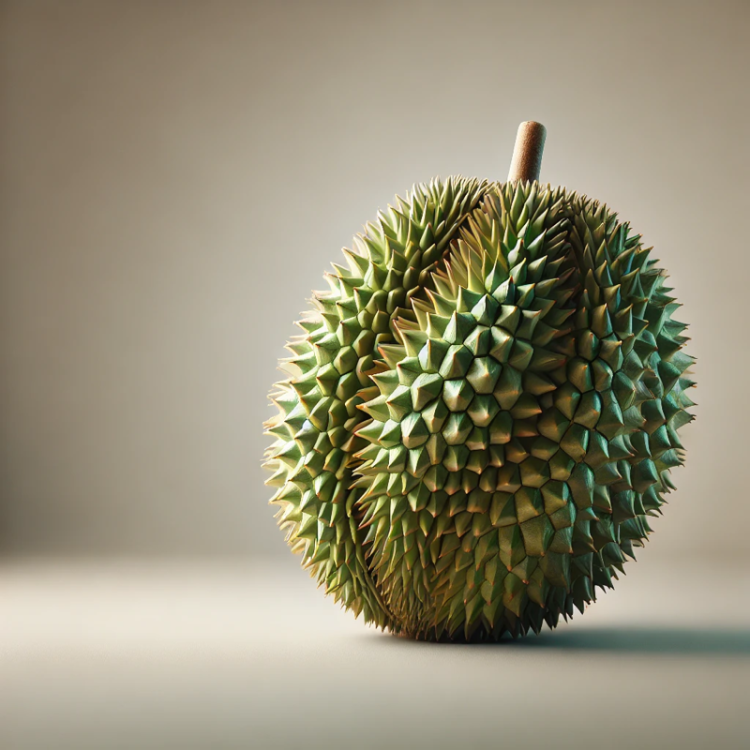Few fruits spark as much debate as the durian, often called the “king of fruits.” Loved by some for its rich, custard-like flavor and hated by others for its strong, pungent smell, durian is a paradox of nature that has captivated and repelled people for centuries. Let’s explore the curious world of this divisive fruit, from its infamous odor to its surprising taste and natural habitat.
Durian is a tropical fruit native to Southeast Asia, particularly countries like Malaysia, Thailand, Indonesia, and the Philippines. Known for its large, spiky shell and creamy yellow flesh, durian is revered as a delicacy in its native regions. Despite its intimidating appearance and smell, durian is considered the “king of fruits” for its rich texture and unique flavor.
The Smell That Turns Heads
Durian is infamous for its overpowering smell, often described as a mix of rotten onions, turpentine, and sewage. The strong odor comes from sulfur compounds and other volatile organic molecules that combine to create its pungent aroma. Its smell is so intense that durians are banned in many public places, including hotels and public transportation, in countries like Singapore and Malaysia.
The Taste That Wins Fans
Surprisingly, many people who brave the smell discover that durian has a delightful flavor. Its creamy, custard-like flesh offers a sweet taste often compared to almonds, caramelized bananas, or even butterscotch. For durian lovers, the fruit is a delicacy worth every whiff of its powerful aroma.
Does Durian Grow Wild?
Yes, durian grows both in the wild and in cultivated orchards. Wild durian trees thrive in the rainforests of Southeast Asia, where they can reach heights of up to 150 feet (45 meters). These trees flourish in tropical lowlands with warm, humid climates and consistent rainfall.
• Wild Durian: Smaller and sometimes more pungent than cultivated varieties, wild durians are an important food source for forest animals like orangutans, civets, and birds, which help disperse the seeds.
• Cultivated Durian: Most durians found in markets come from orchards where specific varieties have been bred for traits like milder odors or creamier textures.
Cultural Importance
In Southeast Asia, durian is not just a fruit; it’s a cultural phenomenon. From bustling markets in Thailand to rural villages in Malaysia, durian is celebrated in festivals and loved for its nutritional value. Rich in vitamins, healthy fats, and fiber, durian is more than a snack—it’s a prized part of local diets.
A Word of Caution for Pet Owners
While durian is a delicacy for humans, it can be harmful to pets if ingested. Its rich, sugary flesh may cause digestive issues, and certain components of the fruit may not sit well with animals. If you enjoy durian at home, be sure to keep it out of reach of your furry friends.
Jehovah’s Creativity in Action
Durian’s unique combination of smell, taste, and ecological importance highlights the remarkable creativity in Jehovah’s design. Jeremiah 10:12 reminds us, “He is the Maker of the earth by his power, The One who established the productive land by his wisdom And who stretched out the heavens by his understanding.” The intricate role durian plays in rainforest ecosystems, providing food for wildlife and aiding in seed dispersal, reflects Jehovah’s wisdom and understanding in crafting a balanced and interdependent creation.
• Durian’s nickname as the “king of fruits” reflects its size, taste, and cultural significance in Southeast Asia.
• Some wild durian varieties are so pungent they’re rarely eaten, but they remain vital for forest ecosystems.
• Durian’s nutritional content includes high levels of healthy fats and antioxidants, making it both a treat and a source of energy.
Sources
1. National Geographic: Insights into the ecological role of durian.
2. Smithsonian Magazine: Cultural and culinary significance of durian.
3. Encyclopedia Britannica: Overview of durian as a tropical fruit.
4. Journal of Tropical Ecology: Wild durian’s impact on rainforest ecosystems.
5. New World Translation of the Holy Scriptures: Psalm 104:24.
Thank you to John @Qpala for the suggestion!
Edited by dljbsp
Accuracy



5 Comments
Recommended Comments
Join the conversation with your brothers and sisters!
You are posting as a guest. If you are already a member, sign in now to post with your existing account.
Note: Your post will require moderator approval before it will be visible.